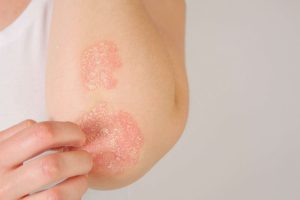 Eczema, a term that encompasses a variety of inflammatory skin conditions, affects millions of individuals worldwide. Characterized by dry, itchy, and inflamed skin, eczema can significantly impact the quality of life for those who suffer from it. This article delves into the symptoms, diagnosis, and treatment options available for eczema, providing a comprehensive overview for better understanding and management of this common condition.
Eczema, a term that encompasses a variety of inflammatory skin conditions, affects millions of individuals worldwide. Characterized by dry, itchy, and inflamed skin, eczema can significantly impact the quality of life for those who suffer from it. This article delves into the symptoms, diagnosis, and treatment options available for eczema, providing a comprehensive overview for better understanding and management of this common condition.
Symptoms of Eczema
Eczema manifests in various ways, and its symptoms can differ from person to person. The most common signs include:
Dry Skin
Individuals with eczema often experience excessively dry skin, which can lead to discomfort and irritation. This dryness can occur anywhere on the body but is particularly prevalent in areas such as the hands, feet, and the insides of the elbows and knees.
Itching
Itching is one of the hallmark symptoms of eczema. The itch can be mild or severe, and it often worsens at night, leading to sleep disturbances. Scratching the affected areas can exacerbate the condition, leading to further irritation and potential skin infections.
Red or Brownish-Gray Patches
Eczema can cause patches of skin to become red, inflamed, or discolored. In individuals with darker skin tones, these patches may appear brownish or gray. The affected areas can also become thickened and leathery over time due to chronic scratching.
Oozing and Crusting
In some cases, eczema can lead to the formation of blisters that ooze fluid. This can create crusty patches on the skin, which may become infected if not properly managed.
Flare-Ups
Eczema symptoms can fluctuate, with periods of exacerbation known as flare-ups. These flare-ups can be triggered by various factors, including environmental irritants, allergens, stress, and changes in temperature or humidity.
Types of Eczema
Understanding the different types of eczema is crucial for effective diagnosis and treatment. Here are the primary forms:
Atopic Dermatitis
Atopic dermatitis is the most prevalent form of eczema, often beginning in childhood. It is characterized by dry, itchy patches that can become inflamed and crusty. This type of eczema is frequently associated with other allergic conditions, such as asthma and hay fever.
Contact Dermatitis
This type occurs when the skin comes into direct contact with an irritant or allergen. Symptoms may include redness, swelling, and itching localized to the area of contact. Identifying and avoiding the triggering substance is essential for management.
Dyshidrotic Eczema
Dyshidrotic eczema presents as small, itchy blisters on the hands and feet. These blisters can be painful and may lead to cracking and peeling of the skin. Stress and exposure to certain metals are common triggers.
Nummular Eczema
Nummular eczema is characterized by coin-shaped patches of irritated skin. These patches can be itchy and may become crusty or scaly. It often occurs after skin injuries, such as cuts or insect bites.
Seborrheic Dermatitis
This chronic form of eczema affects oily areas of the body, including the scalp and face. It leads to red, greasy skin covered with white or yellowish scales. In infants, it is commonly referred to as cradle cap.
Stasis Dermatitis
Stasis dermatitis occurs due to poor circulation, often in the lower legs. Symptoms include swelling, redness, and itching, with the skin becoming dry and discolored over time. Treatment focuses on improving circulation and managing inflammation.
Diagnosis of Eczema
Diagnosing eczema typically involves a thorough evaluation by a healthcare provider. The process may include:
Medical History Review
A healthcare professional will begin by discussing the patient’s medical history, including any family history of eczema or other allergic conditions. Understanding the patient’s symptoms and their duration is crucial for accurate diagnosis.
Physical Examination
A physical examination of the skin is essential to identify the characteristic signs of eczema. The provider will look for specific patterns and locations of the rash, which can help differentiate between the various types of eczema.
Allergy Testing
In some cases, allergy testing may be recommended to identify potential triggers. This can include skin prick tests or patch testing, where small amounts of allergens are applied to the skin to observe for reactions.
Additional Tests
If the diagnosis is unclear, additional tests such as blood tests or skin biopsies may be conducted to rule out other skin conditions or confirm the diagnosis.
Treatment Options for Eczema
While there is no cure for eczema, various treatment options can help manage symptoms and reduce flare-ups. The choice of treatment depends on the severity of the condition and individual patient needs.
Moisturizers
Regularly applying moisturizers is a cornerstone of eczema management. Emollients help to hydrate the skin and restore the skin barrier, reducing dryness and irritation. It is recommended to apply moisturizers immediately after bathing to lock in moisture.
Topical Corticosteroids
Topical corticosteroids are commonly prescribed to reduce inflammation and itching during flare-ups. These medications come in various strengths and should be used as directed by a healthcare provider to minimize potential side effects.
Calcineurin Inhibitors
For sensitive areas of the skin, such as the face and eyelids, calcineurin inhibitors like tacrolimus and pimecrolimus may be recommended. These non-steroidal medications help reduce inflammation without the side effects associated with long-term steroid use.
Antihistamines
Oral antihistamines can help alleviate itching and improve sleep quality, especially during flare-ups. They are particularly useful for nighttime itching.
Phototherapy
For moderate to severe eczema that does not respond to topical treatments, phototherapy may be considered. This involves exposing the skin to controlled amounts of natural sunlight or artificial ultraviolet light to reduce inflammation and itching.
Systemic Medications
In severe cases, systemic medications such as corticosteroids, immunosuppressants, or biologics may be prescribed. These treatments work by suppressing the immune response and reducing inflammation throughout the body.
Lifestyle Modifications
In addition to medical treatments, lifestyle changes can play a significant role in managing eczema. These may include:
-
- Identifying Triggers: Keeping a diary to track flare-ups and potential triggers can help individuals avoid known irritants.
- Stress Management: Practicing relaxation techniques, such as yoga or meditation, can help reduce stress-related flare-ups.
- Dietary Considerations: Some individuals may find that certain foods exacerbate their eczema. Consulting with a healthcare provider or nutritionist can help identify any dietary triggers.
Living with Eczema
Managing eczema is an ongoing process that requires patience and diligence. Here are some tips for living with the condition:
Skincare Routine
Establishing a consistent skincare routine is essential for managing eczema. This includes regular moisturizing, gentle cleansing, and avoiding harsh soaps or irritants.
Clothing Choices
Wearing loose-fitting, breathable clothing made from natural fibers can help minimize irritation. Avoiding wool and synthetic fabrics is advisable, as they can exacerbate itching.
Environmental Control
Maintaining a comfortable home environment can help reduce flare-ups. Using a humidifier in dry conditions and avoiding extreme temperatures can benefit sensitive skin.
Support and Resources
Connecting with support groups or online communities can provide valuable resources and emotional support for individuals living with eczema. Sharing experiences and coping strategies can be beneficial.
When to Seek Medical Attention
While many individuals can manage their eczema with at-home treatments, there are times when professional medical help is necessary. Seek medical attention if:
- Symptoms worsen or do not improve with treatment.
- Signs of infection, such as increased redness, swelling, or pus, develop.
- Eczema significantly impacts daily life or mental well-being.
Eczema is a complex condition that requires a multifaceted approach to management. By understanding the symptoms, types, and treatment options available, individuals can take proactive steps to manage their eczema effectively. With the right care and support, it is possible to lead a fulfilling life despite the challenges posed by this common skin condition.
Our Medical Memberships Cover Eczema Care
Direct Primary Care (DPC) is a model of care where the patient pays an upfront monthly membership fee for high-quality and low-cost primary care. This means no surprise fees or being billed differently for sick visits versus wellness visits. This model is accessible to all. The focus of Direct Primary Care is ongoing wellness and prevention to prevent unnecessary hospitalizations or costly visits to the ER for primary care services.
> Learn More About Our Medical Memberships
Contact Us (727-312-1262) To Learn More!
—
 About Honeybee Holistic Health
About Honeybee Holistic Health
Honeybee Holistic Health strongly believes in a holistic, organic, and integrative model of care where the patient is the center of all decisions. Our approach is to empower each one of our patients to heal themselves and to make informed, autonomous decisions in their plan of care. This is approached by integrating modern medicine with well-studied homeopathic treatment options when appropriate.
> Learn More